Puppy Regret: Is This Normal? (Puppy Blues Help)
It is a tale as old as time. You go out and as you are going about your day, you see the most amazingly, heart-meltingly adorable puppy, whether in a shelter, a store, or simply wandering on the street, all lost and confused.
Immediately, your heart leaps into your throat and you fall in love. HARD. After all, how can you say “no” to those pleading, adorable eyes? So you do what the majority of humans would do – you buy the puppy or snatch them out of a shelter, taking them home.
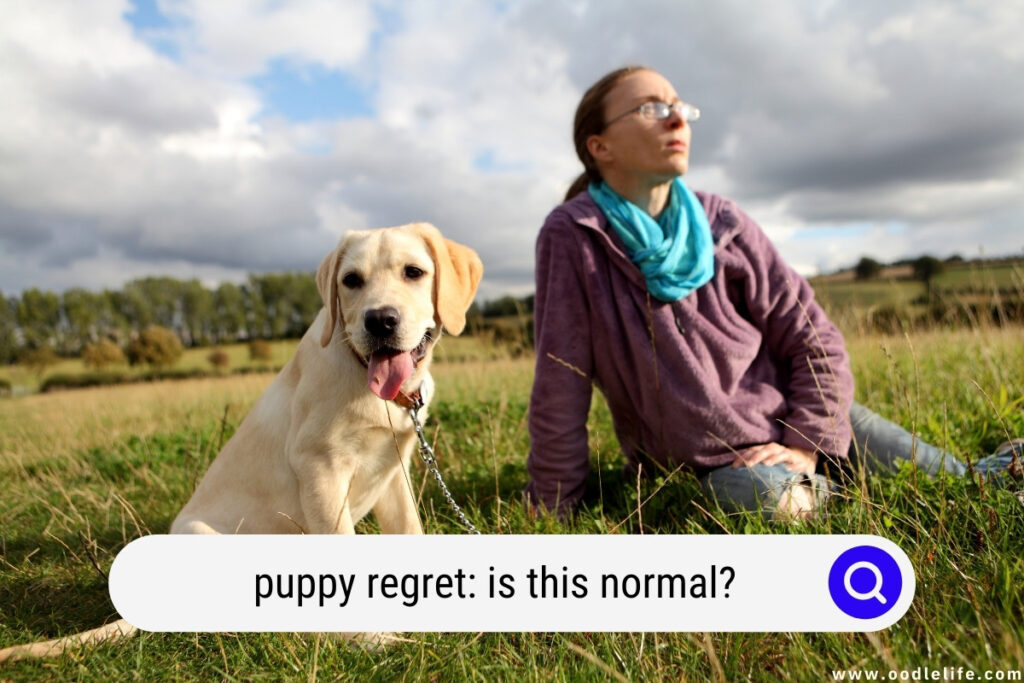
Now the first couple of days might be exciting, but suddenly it dawns on you – you have just committed yourself to a relationship that will last at least 10 years, if not more. There’s a HUGE commitment, especially if you weren’t prepared for it.
Now you have all these thoughts creeping into your head, like “Yikes, what did I do”, or “Do I really want a puppy?”
We have news for you. Puppy regret is more common than you think. In fact, it would be a particularly strange owner if you took your puppy home and DIDN’T start second-guessing yourself.
It doesn’t make you a bad person, but it can just mean that the initial exciting rush of a new puppy has worn off, and now you are confronting the reality of the situation.
Committing To A Puppy
Experienced dog owners know this all too well. Puppies are a huge decision and massive amounts of work! They need to be fed, exercised, and trained, not to mention watched 24/7 or they will destroy your house, bags, shoes, and anything that they can get their little puppy teeth into.
Not to mention the fact that they’ll eventually grow into full-sized dogs who will need lots of space to run and play.
Puppies can be overwhelming, especially when it all hits you at once. The trick is to segment each part down into bite-sized pieces that you can chip away at, one step at a time.
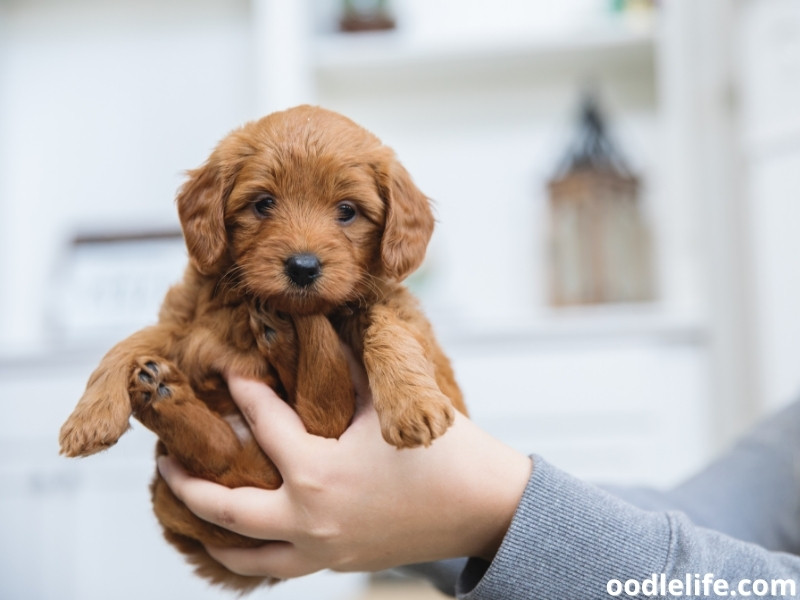
Challenges Of Having A Puppy And How To Deal With It
Here are some common challenges associated with having a puppy, and how you can slowly, but steadily, work your way through them to set you and your new puppy up for a long, happy life together.
1. The Whining And Crying
Anyone that’s had a pup knows that they cry…a lot. But have you ever stopped to wonder why? Puppies are born deaf and blind, so they use crying as a way to communicate their needs.
When they cry, it’s usually because they’re hungry, cold, or in need of attention.
Of course, puppies aren’t the only ones who use crying as a form of communication. Humans do it too! Infants cry to communicate something that they want or lack.
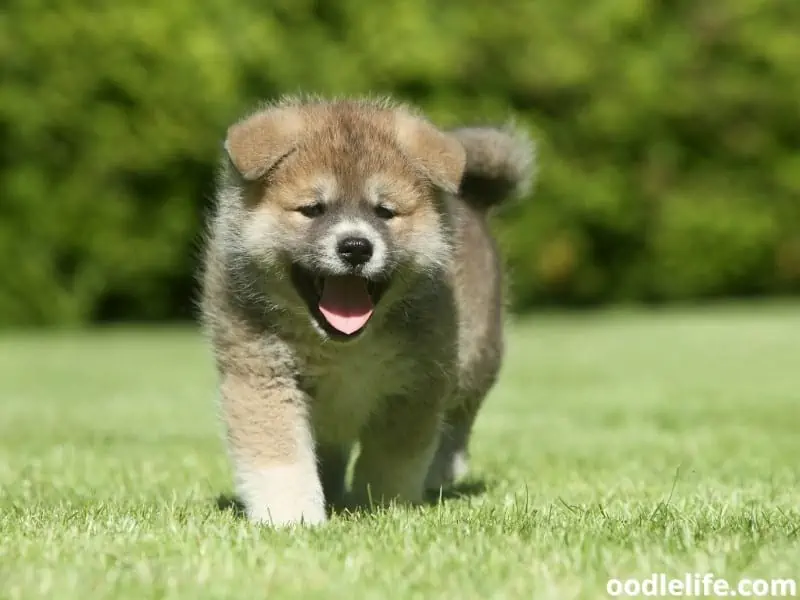
How To Deal With A Crying Pup?
It’s normal for puppies to cry—after all, they’re just trying to communicate their needs, just like human babies.
However, that doesn’t mean it’s easy to deal with a crying puppy. If your puppy is crying excessively, there are a few things you can do to help calm them down. First, make sure that they have everything they need—a full stomach, some comforting bedding, and potentially a crate for its “safe place”.
If they’re still crying, try gently stroking their fur or speaking in a soothing voice. You can also try distracting them with their favorite toy or going for a walk and giving them some gentle exercise to tire them out.
With a little patience and trial and error, you’ll soon figure out what works best to calm your crying puppy.
2. The Potty Training
Puppies will have plenty of accidents, you can bet your bottom dollar on it. An invaluable tool for potty training is the crate. If you are not sure how to crate-train, do yourself and your pooch a favor and consult a training professional.
You’ll save heaps of time and cleaning effort!
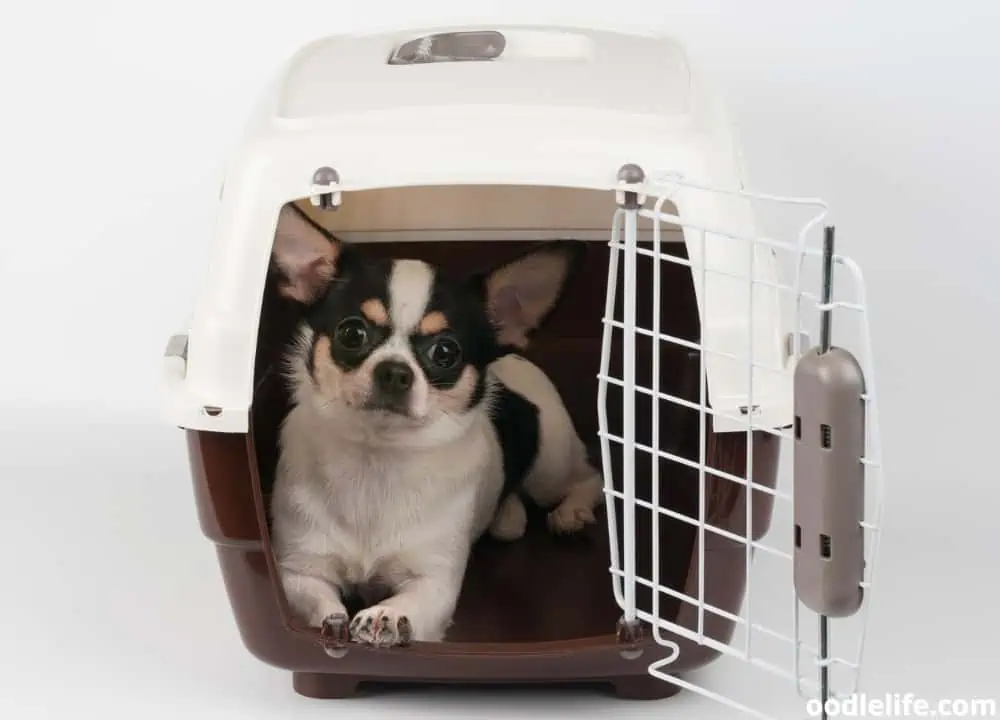
However, before your pup is reliably house-trained, you’d be better off standing by with an arsenal of cleaning products. Here are some things that you might need to clean up constantly after your pup:
Enzymatic Cleaners
One of those things is to use an enzymatic cleaner. Enzymatic cleaners are designed to break down urine and other organic matter, which makes them perfect for cleaning up after your pup.
To use an enzymatic cleaner, simply spray it on the area where your pup has made a mess. Let it sit for a few minutes, then wipe it up with a cloth or paper towel.
Odor Eliminator
Dogs are creatures of habit that will mark over their own scent. Once they have an accident, they are likely to continue using that spot. That’s where odor eliminators come in.
This type of product uses natural enzymes to break down the urine, which eliminates the odor and makes it much easier to potty train your puppy.
Puppy Pee Pads
There are many different types of puppy pee pads available on the market today. Some are made of absorbent material that will soak up your puppy’s urine, while others are made of non-absorbent material that will prevent your puppy’s urine from seeping through.
There are also pads that are specifically designed for indoor use and others that are made for outdoor use.
Vacuum
Depending on your pup, there’s going to be heaps of dog fur around the house in the coming months. You’ll need a decent vacuum cleaner to suck up all that hair and dander, especially if you have a sensitive respiratory system or allergies.
3. The Chewing
Oh boy, do puppies ever like chewing! You’ll need to thoroughly puppy-proof your home, not just to protect your belongings, but also to protect that curious pup of yours. The razor-sharp teeth of a young pup will go through everything, even hazards like wiring, cords, and electronics.
Make sure that when you are puppy-proofing, you pay attention to any plants that you have indoors or out, and that none of the plants are toxic to dogs.
Have plenty of dog chews and toys on hand to quickly redirect your puppy’s amorous chewing efforts, rewarding and praising lavishly when you do.
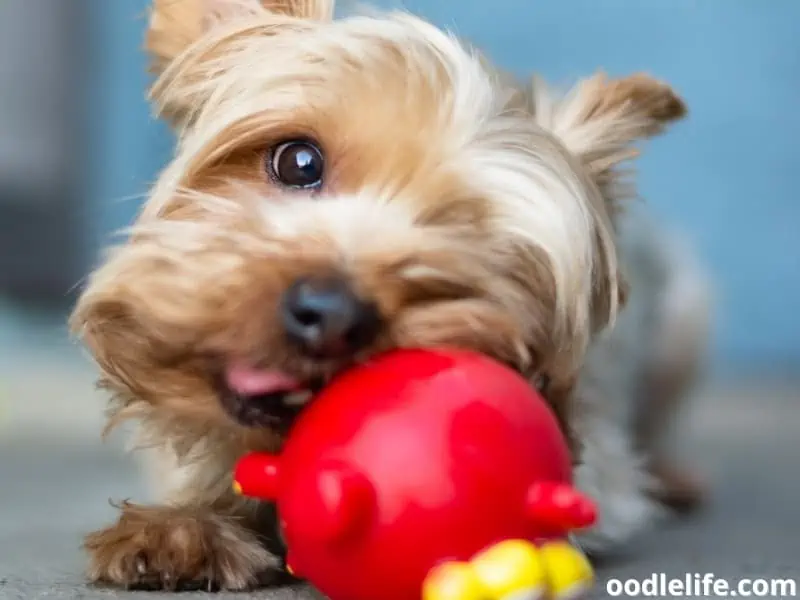
4. Training, Socialization, and Exercise
Training your pup can begin almost immediately. Puppies have short attention spans and can get bored and distracted easily, so stick to very short sessions multiple times a day.
Socialization should begin as soon as your pup is fully vaccinated and can meet other dogs safely. Any dog owner knows that a well-socialized dog is a happy dog.
Dogs are social creatures by nature, and they thrive when they have regular opportunities to interact with other dogs and people. A socialized dog is less likely to be anxious or fearful and is more likely to be friendly and relaxed around strangers.
Additionally, socialized dogs are less likely to exhibit aggressive behaviors, making them better companions and easier to train. For all of these reasons, it is important to make sure that your dog has plenty of opportunities to socialize.
A good way to start is by enrolling your dog in a puppy class at your local animal shelter or obedience school. This will give your pup a chance to meet other dogs and learn how to properly interact with them.
You can also take your pup for walks in busy parks or on crowded streets, and invite friends over regularly to visit with your four-legged friend.
By taking the time to socialize your pup, you’ll be investing in a lifetime of happiness for both of you.
Be sure to only do so about two weeks after the last vaccination in your pup’s schedule, allowing him the time to develop the antibodies that will help his immune system resist potentially serious conditions such as distemper and parvovirus.
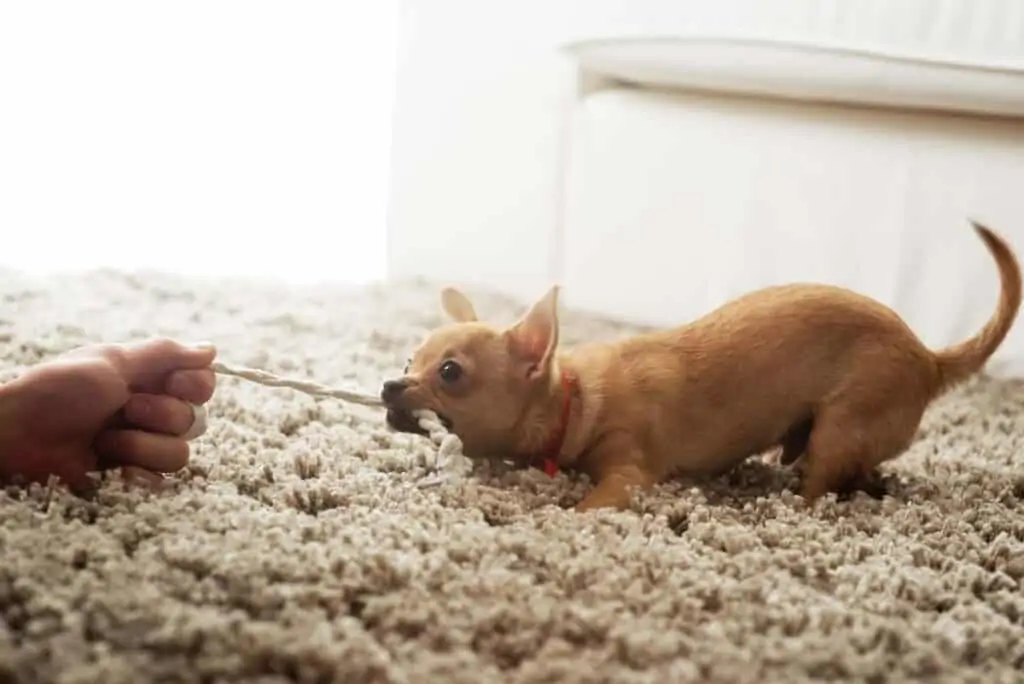
5. Vaccinations And Vet Visits
You’ll need to keep up with the vaccination schedule of your pup and arrange a yearly checkup to keep them in tip-top shape.
Most puppies are fully vaccinated at 12 weeks old, and can then go out and play with other dogs.
Puppies are super vulnerable when they are weaned as that’s when they are no longer protected by the antibodies from their mother’s milk. In addition, before they are fully vaccination, they are open to serious canine conditions like distemper and parvovirus, which can be fatal, so don’t take any risks!
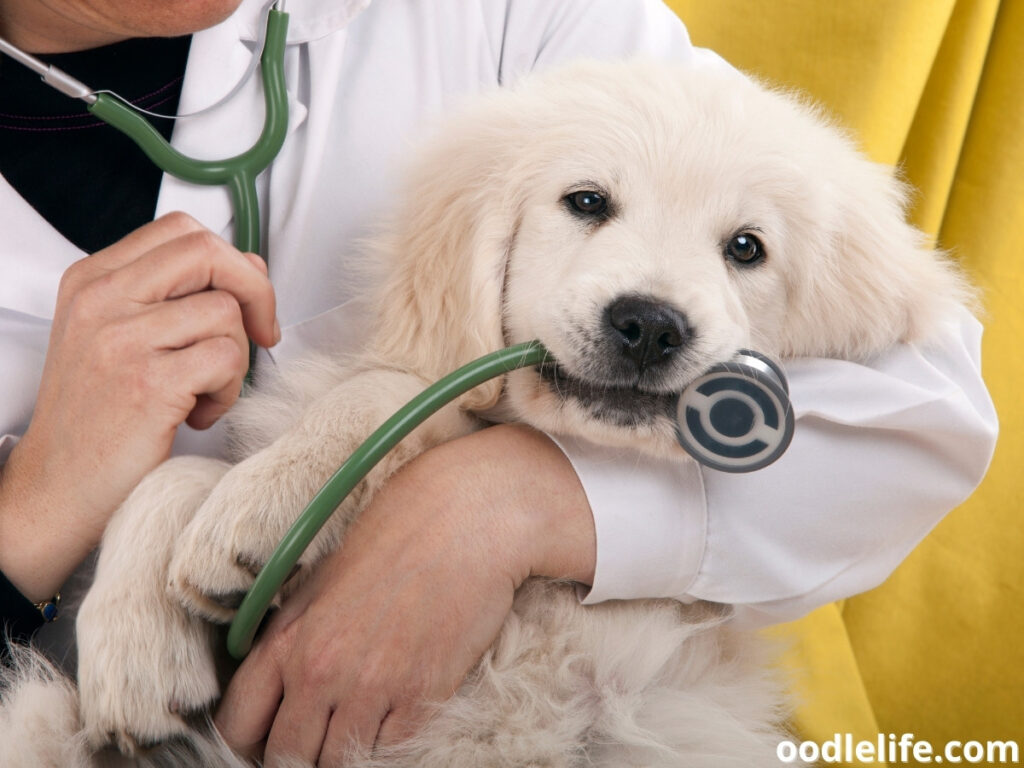
Final Thoughts On Puppy Regret
If you did it, and took the plunge and got a new puppy, congratulations! The first part is hard, but we promise you, it will get easier. WAY easier.
If you’re wondering if you made a mistake, fret not. Puppy regret is not only normal, but it is more common than you think.
The first few weeks with a new puppy are always tough. There’s the potty training, cleaning up the accidental “oopsies”, the chewing, the whining, and crying…it’s enough to make anyone question their decision to get a dog.
But here’s the kicker – it gets better. A lot better. Those little puppies grow up into big dogs, and they become a part of your family.
So if you’re feeling puppy regret, hang in there. It will get better, we promise. And the joy of raising a puppy to be your best friend is unparallel!